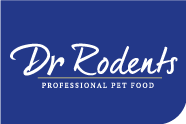DrRodents product line was created in response to the demand for high quality feed for rabbits, guinea pigs and reptiles by veterinarians, breeders and pet owners. From the beginning we put great emphasis on the quality of ingredients and proper proportions. DrRodents feeds are produced in Poland and the recipes have been created specifically for us by Belgian specialists in the field of small animals.
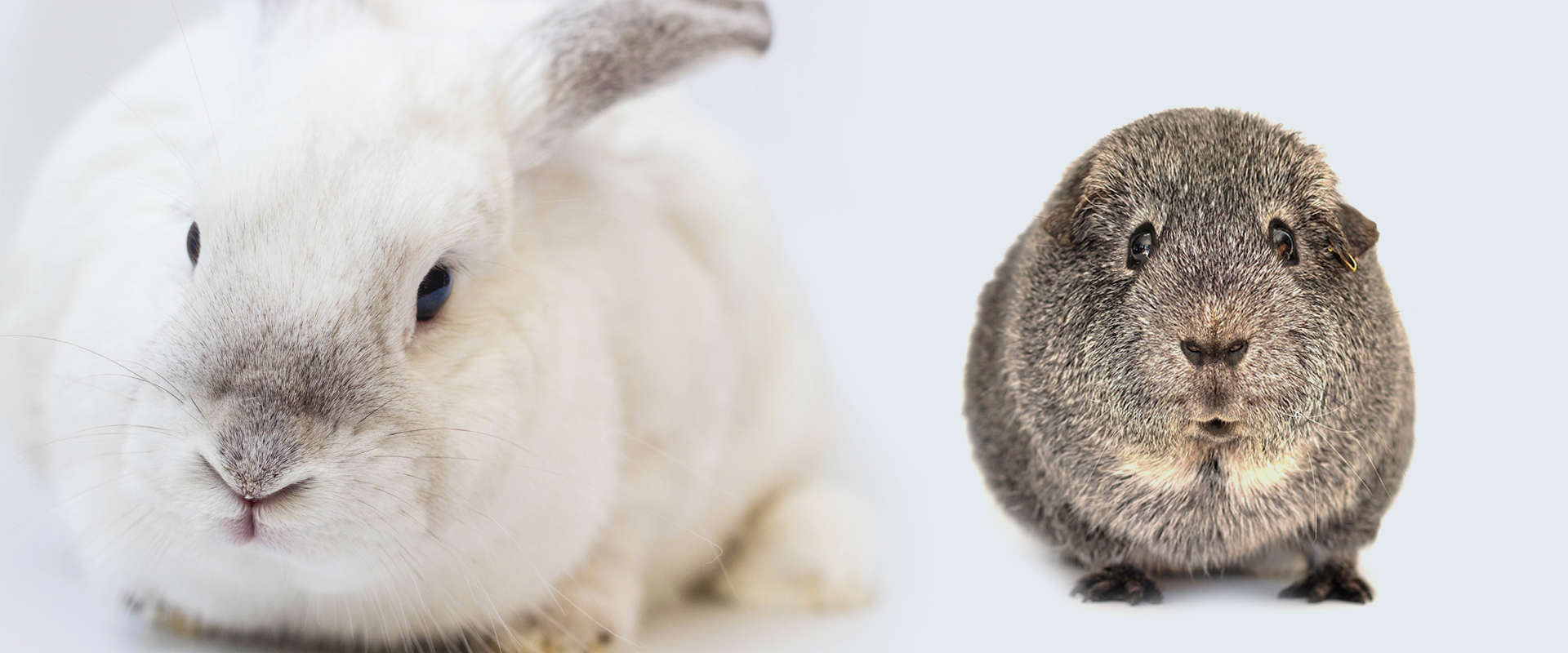
DrRodents line of feed
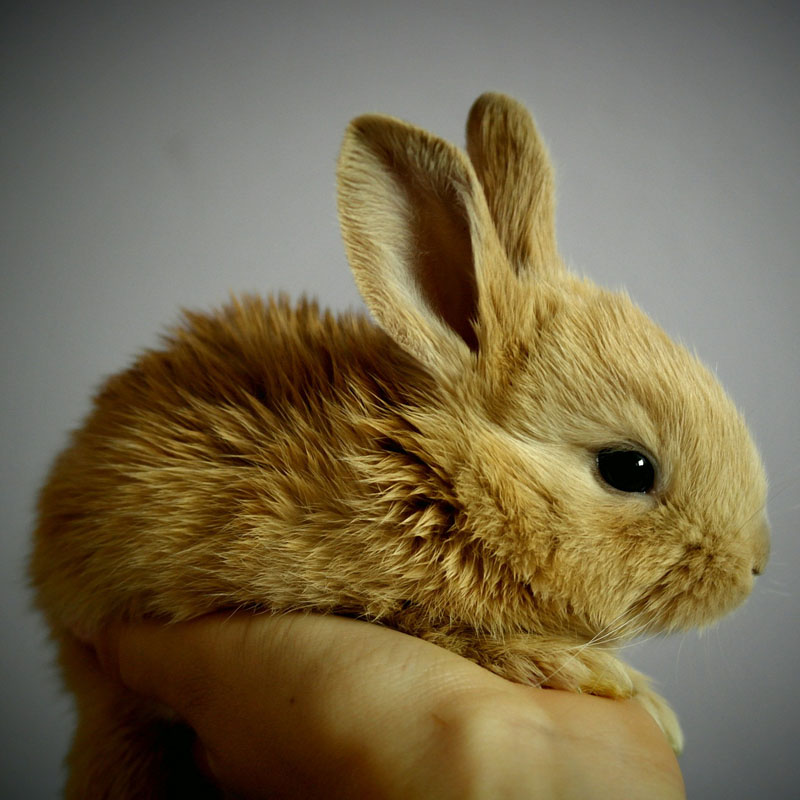
The composition provides a balanced diet for rabbits and the hard pellets help to take care of the teeth of our bunnies.
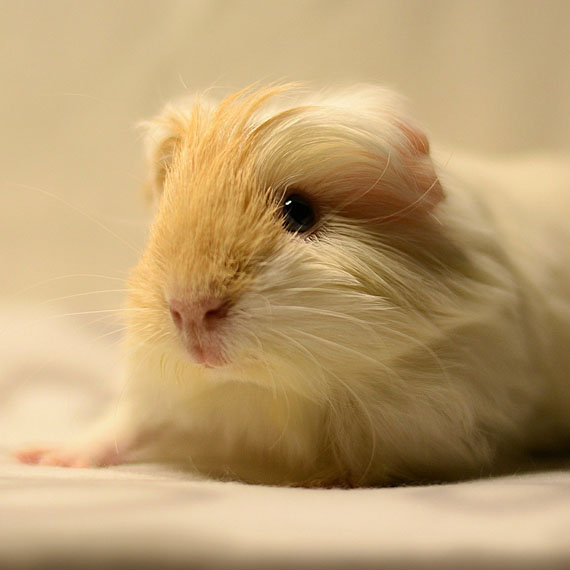
The composition of the feed is ideally suited to guinea pigs, providing them with everything they need for good development.
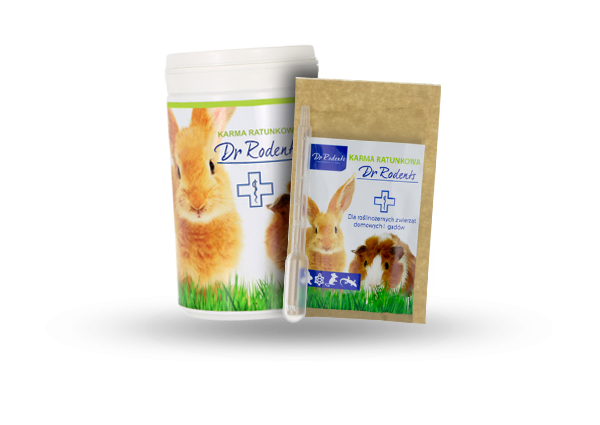
DrRodents rescue food is a line of products designed for weakened and appetite-deprived animals. When water is added, it creates a liquid food that is easily digested by animals during recovery.
Guinea pigs and rabbits are herbivores accustomed to eating hard food. Their teeth grow throughout their lives and wear down as they chew their food. Their digestive tract is adapted to fermented fiber. From this process, they derive energy and nutrients for all other bodily functions. The products of fermentation include vitamins B and K, high-quality protein, and exogenous fat acids. The symbiotic flora of the cecum produce these substances, after which they are absorbed by the animals through coprophagy. The diet feed contains only natural plant ingredients in proportions adapted to the animals’ needs. It is designed to meet the nutrient, vitamin and mineral requirements of the animal while protecting its health by avoiding the harmful effects of overdosing on certain ingredients. It serves to maintain good health and prolong the life of the animal. The most important components in the diet of rabbit and guinea pig are fiber, protein, minerals (ash) and vitamins.
Fiber
Rabbits and guinea pigs in nature eat only plants with high fiber content, such as grass (fresh and withered), tree and bush twigs, and herbs. Dietary fiber is necessary for maintaining the normal function of the gastrointestinal tract, as well as for the abrasion of the teeth. Fiber is divided into soluble (e.g., pectin in fruits, glucan in cereal products) and insoluble (cellulose and hemicellulose in the cell walls of all plant cells). Both types provide a source of nutrients for guinea pigs and rabbits. Soluble fiber has a regulatory effect on cecum function and prevents constipation. Insoluble fiber causes dental wear, and stimulates peristalsis of the small intestine. With fiber deficiency, we encounter overgrowth of incisors and molars, gastrointestinal dysfunction (constipation and gas bloating), and overall poor health of the animal. Dietary foods contain about 25% fiber in dry matter, which corresponds to its content in the natural feed of rabbits and guinea pigs – grass and other plants. This fibre comes mainly from the natural ingredients alpine grass and alfalfa. In addition, the dietary food contains oat bran and dried apple, which contain the soluble plant fibres beta-glucan and pectin. These substances contribute to proper intestinal function.
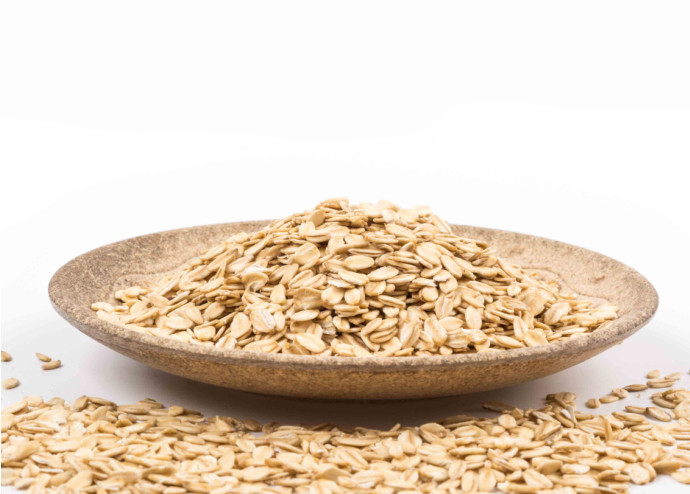
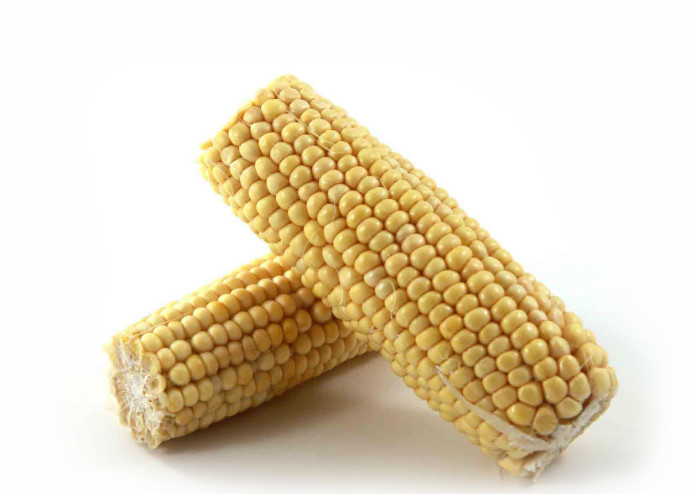
Protein
Rabbits and guinea pigs themselves produce high-quality protein through symbiosis with the bacterial flora of the cecum. Therefore, feed should not contain large amounts of protein. Low-protein feeds stimulate the animal’s natural behavior of coprophagy and intake of nutrients and vitamins produced by the intestinal flora. Too much protein in the feed inhibits coprophagy and can cause deficiencies. In addition, high-protein feeds lead to digestive disorders and stress the kidneys. The latter is a major cause of kidney failure (uremia) in guinea pigs and rabbits. For this reason, diet feeds contain only 11-12% protein in dry matter, which is the natural content in grass and most plants. This content stimulates coprophagy and protects against uremia.
Minerals
Rabbits and guinea pigs, especially in old age, often suffer from chronic kidney failure. These conditions are mainly caused by poor nutrition: too much protein and minerals (ash) in the feed. A low ash content is beneficial for maintaining normal kidney function. In addition, the calcium and phosphorus content of the feed is very important. Deviations from this value lead to serious complications such as nephrolithiasis and urolithiasis (with excess calcium), or hyperparathyroidism and bone decalcification (with excess phosphorus). The diet feed contains fruits and vegetables that reduce the total ash content to about 6%. The ratio of calcium to phosphorus is optimized by the addition of easily absorbable calcium salts.
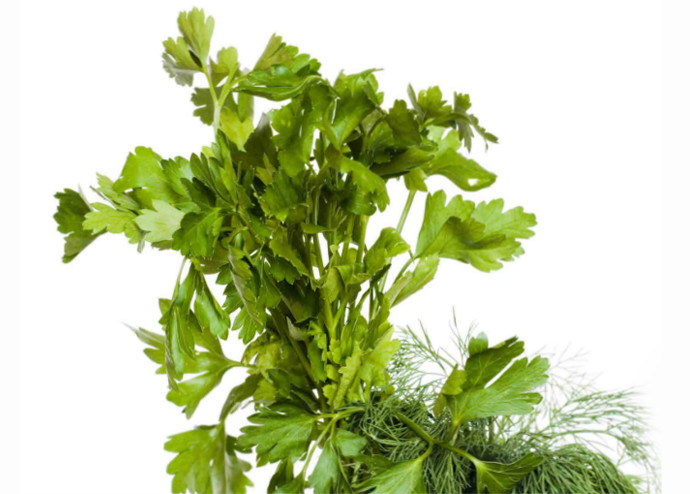
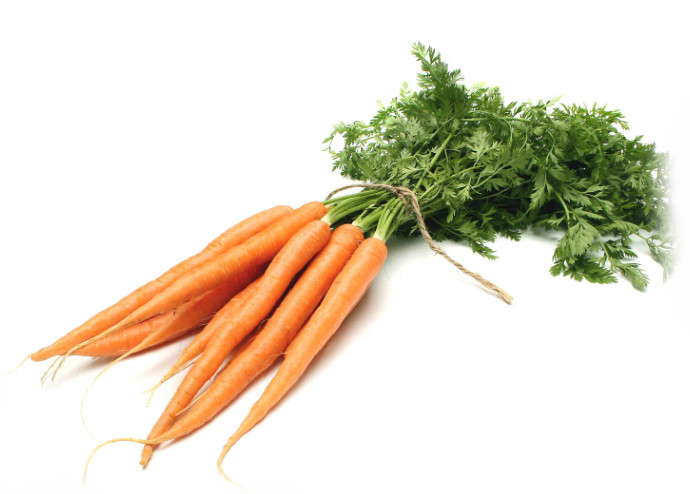
Vitamins
Vitamin C is essential for the body to function. It plays important roles in connective tissue synthesis, protection against harmful free oxygen radicals, and immune system function. Guinea pigs are dependent on vitamin C supplements (approximately 50 mg/day). Dietary feed for guinea pigs contains 1% vitamin C. With an average feed consumption (about 30-50 g/day), the vitamin C requirement is fully covered. In addition to vitamin C, the food contains natural pro-vitamin A (beta-carotene), due to the addition of vegetables such as carrots.
Flavor
Diet feed is not only high in nutritional value, but also in flavor. This is due to the use of carefully selected natural ingredients, such as grasses and vegetables, which are a favorite thing to eat for rabbits and guinea pigs.
